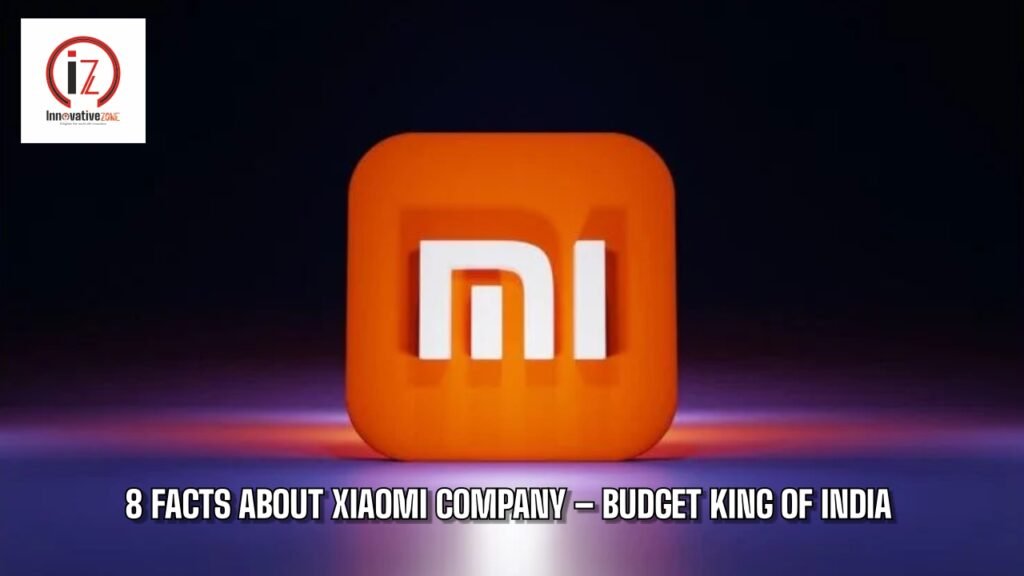8 Key Facts About Xiaomi: The Budget King of India
Xiaomi is a consumer electronics, computer hardware and automotive industry. It is a Chinese designer and manufacturer of consumer electronics and related software, home appliances, automobiles and household hardware.
It is headquartered in Beijing, China. It was founded in 6th April 2010 by Lei Jun, Lin Bin, Zhou Guangping, Liu De, Li Wanqiang, Wong Kong- Kat, Hong Feng and Wang Chuan.
- It is the second largest manufacturer of smartphones in the world behind Samson.
- Xiaomi is Chinese word for ‘millet’. The founder of this company linked the xiao thought to the Buddhist concept that ‘a single grain of rice of a Buddhist is as great as mountain’, suggesting that Xiaomi wants to work from the little things instead of starting by striving for perfection. While MI is an acronym for ‘Mobile Internet’ and also ‘Mission Impossible’ referring to the obstacles encountered in starting the company.
- The first logo of this company consisted of a single orange square with the letters MI in white located in the centre of the square. The logo was in use until 31st March 2021, when a new logo designed by a well known Japanese designer Kenya Hara replaced the old one. It consisted the same basic structure as the previous logo but the square was replaced with a squircle with rounded corner instead and with the letters MI remaining identical to the previous logo along with a slightly darker hue.
- It is ranked 338th and is the youngest company on the Fortune Global 500.
- On 16th August 2010 Xiaomi launched its first Android based firmware MIUI which is now called HyperOS. In the same year the company raised $41 million in a Series A Round.
- In August 2011, Xiaomi released its first smartphone and by 2014, it had the largest market share of smartphones sold in China.
- In 2020, the company sold 149.4 million smartphones and its MIUI mobile operating system has over 500 million monthly active users.
- In the 2021 review of WIPO’s annual World Intellectual Property Indicators, Xiaomi was ranked as second in the world with 216 designs in industrial design registrations being published under the Hague Systems during 2020.
Xiaomi has been accused of imitating Apple Inc. The hunger marketing strategy of Xiaomi was described as riding on the back of the cult of Apple.
FAQ
- What is Xiaomi known for in India?Xiaomi is known for offering high-quality smartphones, smart home devices, and electronic products at affordable prices, making it one of the top choices for budget-conscious consumers in India.
- When did Xiaomi enter the Indian market?Xiaomi entered the Indian market in 2014 and quickly became one of the leading smartphone brands in the country due to its cost-effective and feature-rich products.
- What makes Xiaomi a budget king?Xiaomi has built its reputation as a budget king by offering smartphones with high-end features like powerful processors, good cameras, and long battery life at a fraction of the cost of premium brands.
- How does Xiaomi keep its products affordable?Xiaomi keeps its products affordable by minimizing marketing costs, focusing on online sales, and using a direct-to-consumer model. Additionally, the company keeps profit margins low to ensure cost-effectiveness.
- Does Xiaomi only sell smartphones?No, Xiaomi offers a wide range of products including smart TVs, home appliances, fitness trackers, laptops, and various smart home gadgets, all within an affordable price range.
- Is Xiaomi’s after-sales service reliable in India?Xiaomi has made significant investments in its after-sales service, offering a network of service centers across India. It is known for its prompt customer support and easy warranty processes.
- What are some of the most popular Xiaomi products in India?Some of the most popular Xiaomi products in India include the Mi and Redmi series smartphones, Mi Smart TVs, Mi Band fitness trackers, and Mi Air Purifiers.
- How has Xiaomi impacted the Indian tech market?Xiaomi has revolutionized the Indian tech market by democratizing access to advanced technology, offering premium features at affordable prices, and encouraging other brands to adopt similar pricing strategies.


